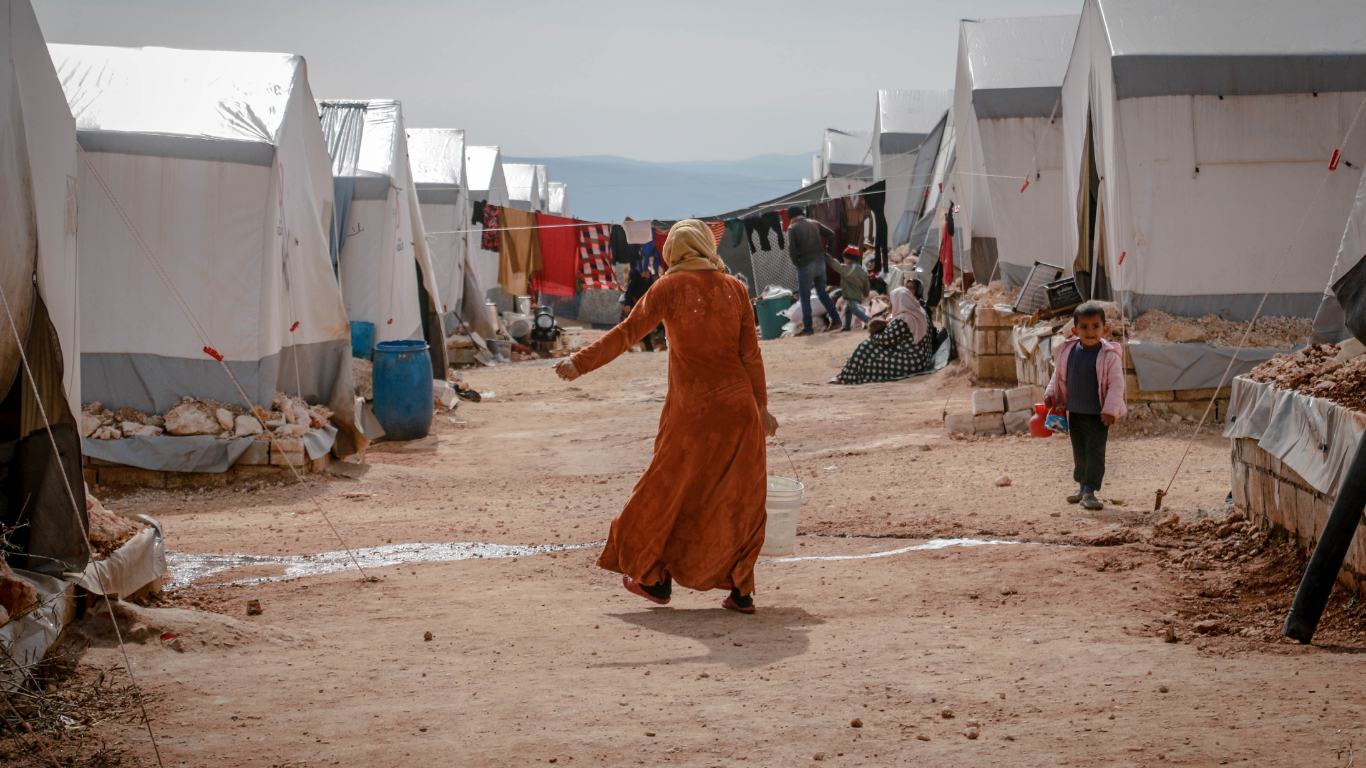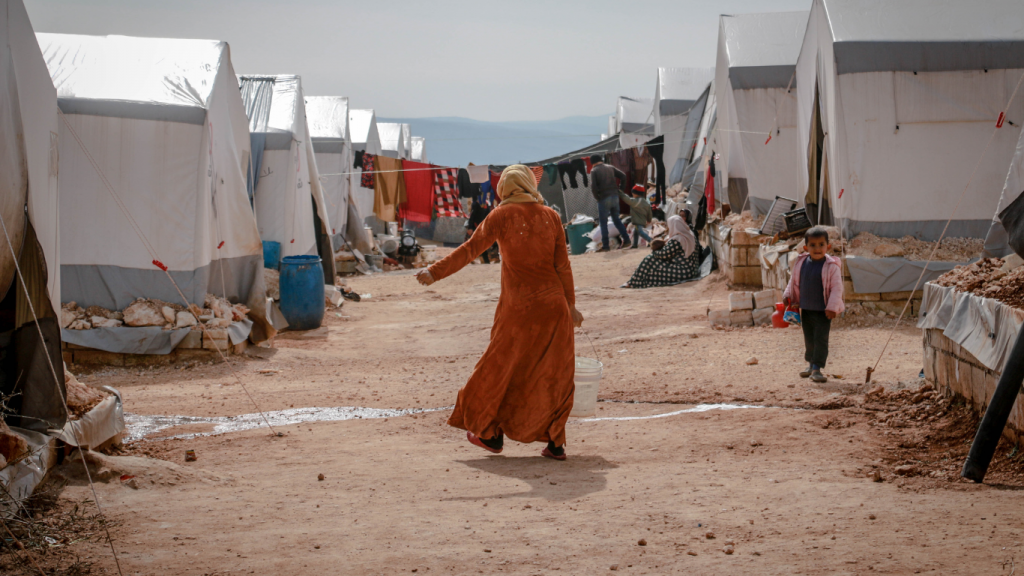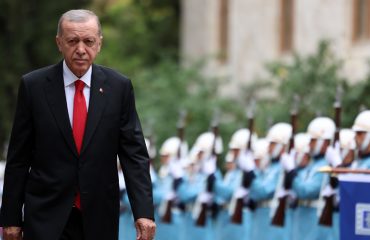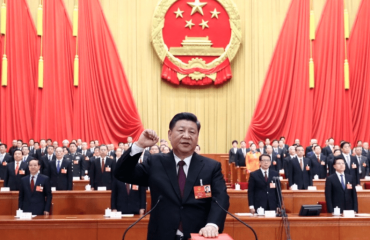

Common European Asylum System outlines measures to be taken in the event of a migration crisis, however, there is one notable point in the proposal: what to do if “a third country or power tries to destabilize the EU member states through migrants.” Does this “third country or power” refer to Erdoğan?
In an interview with Hürriyet Newspaper the other day, German Federal Minister of the Interior and Homeland Nancy Faeser stated that the migration pact between Turkey and the European Union should be renewed.
Faeser said that the EU could provide more financial support to Turkey and that they expect Turkey to “uphold its responsibilities”.
The same day this statement was made, representatives of EU member states agreed on a new proposal for the new articles of the Common European Asylum System.
The new pact outlines measures to be taken in the event of a migration crisis, however, there is one notable point in the proposal: what to do if “a third country or power tries to destabilize the EU member states through migrants.”
Does this “third country or power” refer to Erdoğan? What concerns lie behind it? Will Europe knock on Erdoğan’s door again, or will the doors be closed when Erdoğan says “I will open the doors”?
Let us first look at what the regulation contains.
Migration Crisis
European Union countries apply the “Dublin Criteria” for migrant and refugee applications. Under this system, the responsibility for assessing applications lies with the country where refugees first arrive. Refugees who hope that once they are accepted in one of the countries within the European Union, they will be able to use the freedom of movement within the Union to cross to other countries, create a pile-up in these countries on the EU’s borders. The migration crisis of 2015 in particular has caused significant financial and bureaucratic burden and human rights violations in these border countries.
The impact of this irregular and uncontrolled migration on the internal politics of the Union countries, the reactions to the treatment of refugees, especially those who reached Greece and later Italy, and the expectation of a massive migration wave in the coming years as a result of climate change have compelled the Union members to reform their migration policy.
Common European Asylum System
As a result, EU member states agreed in September 2020 to develop a new common migration policy and have since developed a number of joint decisions on migration policy, most recently last June. However, these decisions were shadowed by the subsequent ship tragedy that claimed the lives of hundreds of migrants.
One of the final components of the migration policy, which is scheduled to come into effect in April 2024, was completed last Wednesday.
The proposal consists of exceptions to the clauses agreed so far in the event of a potential migration crisis, “force majeure” (a catastrophe such as war or natural disaster), or “the use of migrants by a third country or non-state actor to destabilize a Member State”.
Climate Crisis and migration
Scientists believe that climate change and its effects, which have become unavoidable, will cause serious food insecurity, natural disasters and consequent political instability, especially in the Third World countries in the coming years. It is predicted that by 2050, more than one billion people will be forced to leave their homes and migrate.
EU member states are also preparing for the anticipated wave of migration to avoid problems similar to the crisis of 2015. The decisions taken on Wednesday allow countries to receive help and support from other EU member states in assessing migrants’ applications, providing them with shelter and security measures in the event of mass migration, as well as determining the derogations to migration procedures in these cases.
Under the agreed articles, an EU member state will be able to apply to the European Council for assistance if it is overwhelmed by a wave of migration that it is unable to manage. If the Council’s evaluation is affirmative, the country experiencing the migration surge will be able to request support from other member states. According to the agreement, the requested “solidarity and support measures may take the form of measures aimed at responding to the crisis situation, including relocations, responsibility sharing, financial contributions, alternative solidarity measures or cooperation to support return, or a combination thereof.”
Returns
The agreement extends the scope of migrants whose applications can be assessed at the border (and therefore turned away) in cases where the Council has approved an “exceptional migration situation” and the timeframe for the assessment of these migrants. This will prevent potential migrants from entering the EU borders and allow “valid” applications to be assessed more efficiently.
However, it is emphasized that this “exceptional migration situation” cannot be due to accumulation at the borders of the Member State or migration that does not reach the level of a mass influx, but rather a more serious crisis and mass migration would be required.
Emphasis on protection of families with children and NGOs
The proposal also sets conditions for the processing of children and their families arriving at the border. Children must not be separated from their parents or guardians and must be held with their families in more appropriate accommodation, not in detention.
There is also an agreed requirement to allow civil society organizations access to refugees held at the border. Article (36f) states that
“United Nations agencies, and the United Nations High Commissioner for Refugees in particular, and other relevant partner organisations entrusted with specific tasks by Member States, in particular the International Organization for Migration and the International Federation of Red Cross and Red Crescent Societies, should have effective access to the border”… “The United Nations High Commissioner for Refugees should be allowed access to applicants for international protection, including to those at the border. To this end, the Member State concerned should maintain cooperation with these organisations.”
This regulation is clearly an attempt to prevent human rights violations such as those experienced at the borders of Greece and Italy. However, the countries experiencing an influx of migrants are not keen on NGOs. While the Italian Prime Minister’s reaction to the search and rescue efforts of German NGOs off the coast of Italy recently made news. Italian authorities on Thursday fined and suspended a Spanish non-governmental organization involved in search and rescue operations.
“Instrumentalization of migrants”
Another issue covered extensively in the agreement is the “Instrumentalization of migrants by a third country or non-state actor to destabilize a Member State or the Union”.
We have previously discussed the strain that the migrant influx has created in the domestic politics of European Union countries and how this tension has been used by far-right movements and disinformation spread through social media to destabilize these countries.
Xenophobia, in particular, is one of the main tools used by Russia in their disinformation campaigns on social media. With its covert support for far-right movements and conspiracy theories, Russia is destabilizing the internal dynamics of both the EU and the US.
The emphasis on the “instrumentalization of migrants” in the new EU migration pact shows that the EU is concerned that a possible new wave of migration could cause domestic unrest to spiral out of control.
However, it is also a countermeasure against President Erdoğan’s use of the phrase “we will open the doors” as a bargaining chip against the EU.
The pact paves the way for migrants to be turned back at the border if the Council decides that migrants are being used “by a third country or non-state actor to destabilize a Member State or the Union”. In other words, when the new migration policy comes into effect in April 2024, even if Turkey “opens the doors”, the other side will have closed them.
German Interior Minister Faeser’s statement that the EU countries are willing to “provide more financial support” to Turkey is an indication that they would like to deal with the influx of migrants in a humanitarian way and would take every precaution to prevent a potential humanitarian crisis at the border. However, the Articles in the pact make it clear that if the migrants are piled up at the border for political motives, they plan to close the gates, regardless of the human cost.
The ones who will suffer are the refugees who are treated as second-class human beings, subjected to hatred and discrimination wherever they go.

